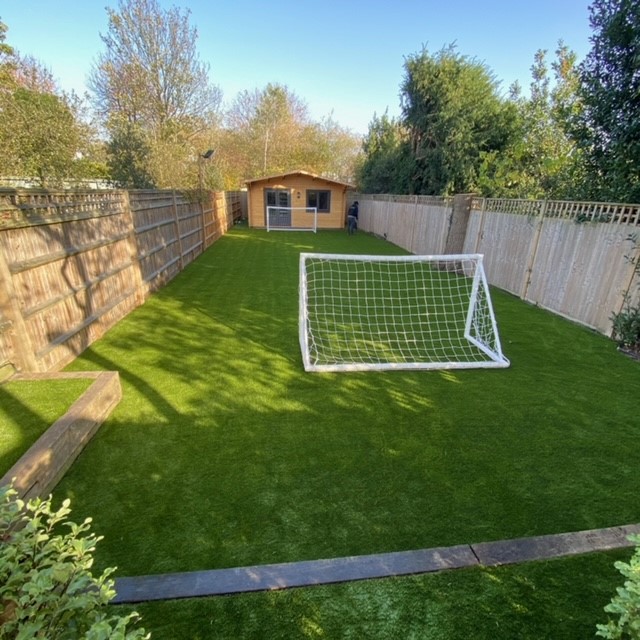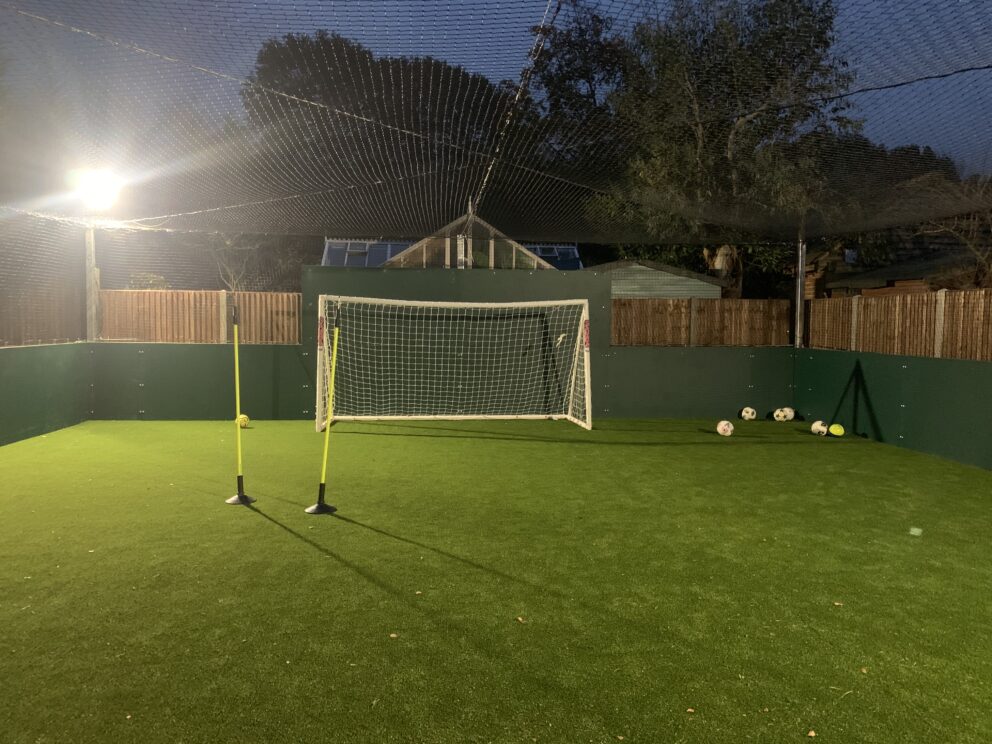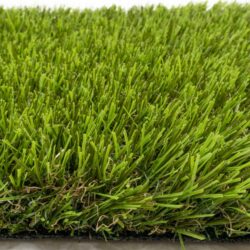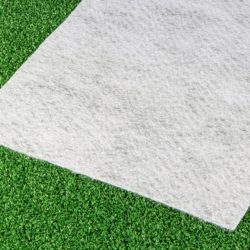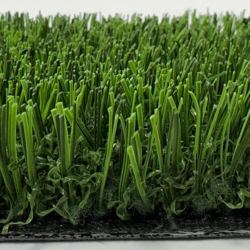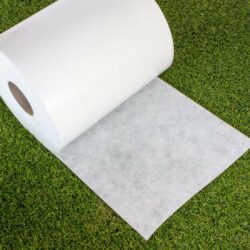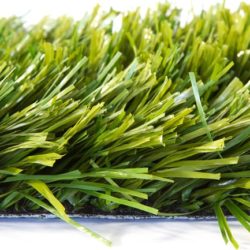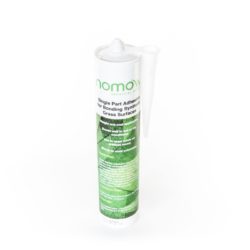Types of Artificial Grass Football Pitches
There are two predominant types of artificial grass sports pitches, 3G and 4G. The ‘G’ just stands for Generation with 3G composing of a rubber-crumb in-fill and 4G composing of a special curled ‘yarn’ that replaces the rubber-crumb element.
Patterns
We can construct a whole variety of patterns into our 4G and 3G sports Surfaces. We can build bespoke designs, club logos, wording and a variety of lines and curves. Speak to our installation team about what design you might have in mind.
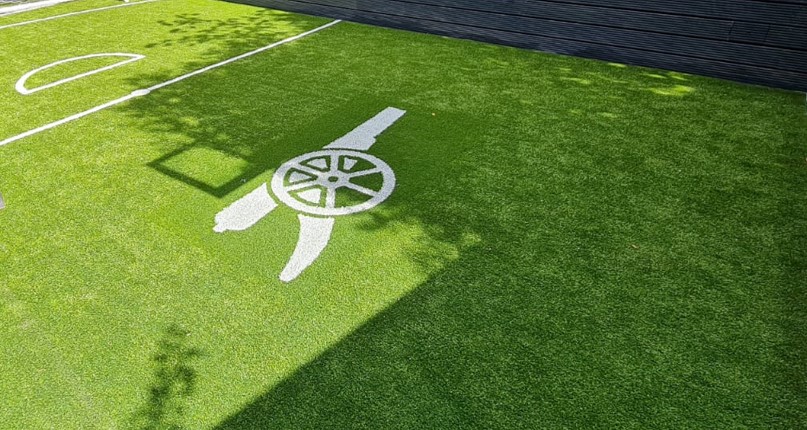
Sub Base
One of the most important parts of an artificial grass sports pitch is the quality of the sub base. This needs to be perfectly flat and stable. We use high quality MOT type 1 to ensure the creation of a solid sub base.
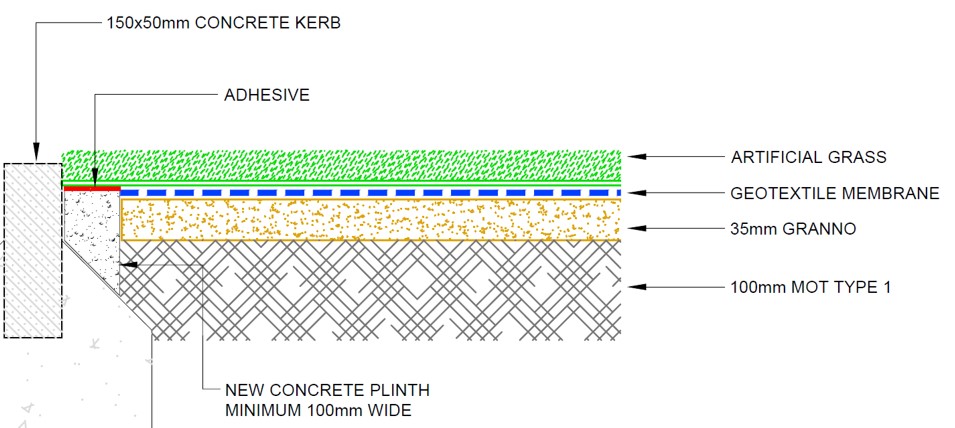
Is a DIY football pitch installation possible?
Yes, many of our customers have built DIY football pitches in their back gardens. Often this doesn’t necessarily involve ultra-secure surfacing or even a rubber-crumb in-fill. For DIY football pitches we recommend either Stadia 24, or even Pro Play. Pro Play is typically used in playgrounds and is not suitable for semi-professional sports pitches, however it is suitable for a small kick about in your back garden.
